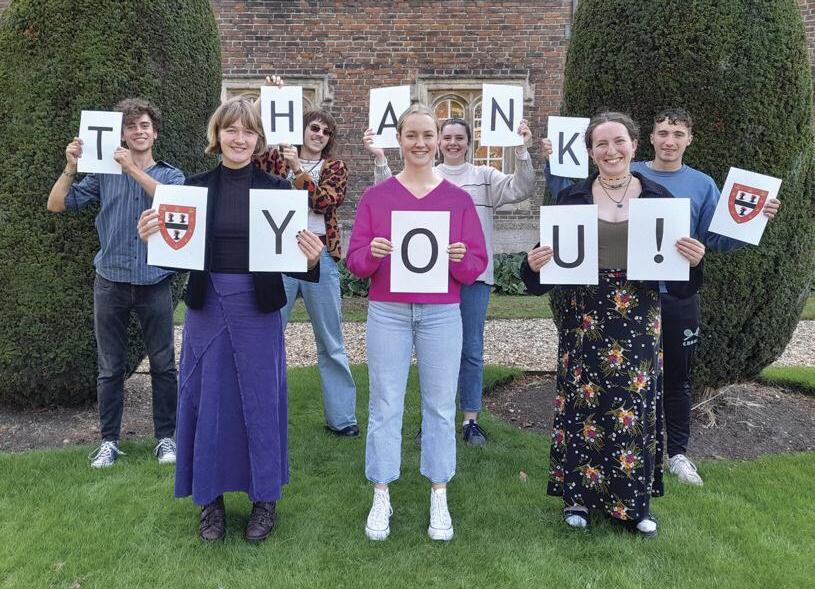
2 minute read
Taking science lessons from histor y
Jesus College welcomes Dr Mary Augusta Brazelton as a new Fellow. She is Director of Studies for History and Philosophy of Science (HPS) and Associate Professor in Global Studies of Science, Technology and Medicine
1. How long have you been working in Cambridge?
I moved to Cambridge from the USA in 2015
I’d previously visited the Needham Research Institute, a centre for the study of East Asian science, technology and medicine (I’m a Research Fellow and Trustee)
I’m a Director of Studies and a University Associate Professor here, so in addition to super vising small groups, I lecture to large groups of students, including some from the 1B Natural Sciences Tripos and medics I hope that people who take my course are shaped into stronger scientists I encourage them to think about the implications of their work and how they’re contributing to science and to society
2. Jesus College welcomed you as a Fellow this year. What does it mean to join us?
Cambridge is over flowing with talented and knowledgeable people and the same can be said for Jesus College It’s great to join a friendly academic community that really cares about its members. I’m enjoying getting to know people and forming new connections
3. How did you first become interested in the history of science?
I was interested in science and humanities as an undergraduate at Har vard, where there was a whole depar tment dedicated to the histor y of science. The subject appealed on an intellectual level, and I became fascinated by the relationship between science and society I’m interested in the lessons we can learn from the past and from dif ferent cultures, especially from East Asia. One professor gave me some great advice, which was to figure out what I enjoyed reading and to keep on reading it
4. Your first book was about vaccinations and learning lessons from China. Did it open doors for you professionally?
My book was published in November 2019, just before the COVID-19 pandemic and the extraordinar y events that followed I was invited to join a Pandemic Histor y Thinktank at the Western Pacific Regional Of fice of the WHO, where we discussed how to use experiences of past pandemics to help manage future outbreaks Our conversations were dif ficult but productive. We produced a White Paper for WHO, and I was invited to speak on a panel at the WHO Health Futures Forum. I’ve also just published a small Cambridge Element book called China and Global Health, an accessible over view which I hope will appeal to a wider audience.
5. What are your hopes and predictions for the future of global health?
It’s striking how quickly people moved to declare this pandemic over I’m ver y positive about vaccines and new technologies; they’ve played a transformative role in managing this pandemic and it’s impor tant to acknowledge their huge success We should be careful though to recognise that they don’t solve all the problems that pandemics cause. Examples throughout histor y show the long-term repercussions of diseases, such as long-term chronic illnesses and mental health problems. We need to ask who’s being left behind, and how can we respond in a mindful way to look after ever yone in society.
6. How do you unwind outside of work?
My family lives in Washington DC, so I take regular trips back to visit I like reading fiction and occasionally I play the piano My husband and I enjoy exploring Cambridgeshire by foot and by bike. We love our jobs and we feel settled here










